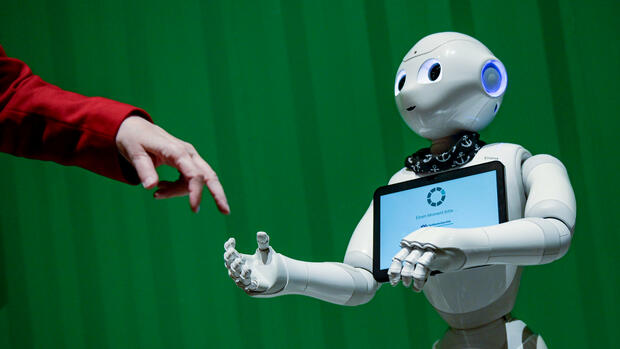Dusseldorf Artificial intelligence (AI) is changing the world – scientists, business leaders and politicians are increasingly in agreement on this. Accordingly, there are a large number of books on the subject. Many resemble a technical manual or describe a vision of how people will live and work together in the future. The book “Menschenversteher – How emotional artificial intelligence conquers our everyday life” by the German-Moroccan engineer and AI expert Kenza Ait Si Abbou comes at just the right time.
The author grew up in Morocco, studied electrical engineering and telecommunications in Spain and Berlin, worked as an AI expert first at Deutsche Telekom and now at IBM Germany. She advocates openness to technology in schools and the promotion of women in technical professions.
Her first book, “Don’t panic, it’s just technology”, published in 2020, became a “Spiegel” bestseller. Now she is dedicating herself specifically to artificial intelligence.
There is already AI today that captures biometric data such as facial features or voices and automatically draws conclusions about the emotions of this person. Based on facial expressions, gestures and brainwaves, high-resolution cameras and sensors can already read feelings, for example the state of mind of customers when they make a complaint. In medicine, for example, diagnostic instruments that read facial expressions are to be used in the early detection of Parkinson’s disease.
Figures also show that the economic importance of emotional artificial intelligence is increasing. According to the market researcher “Markets and Markets”, the market volume of technologies for emotion recognition by AI will increase from 23.5 billion US dollars in 2022 to 42.9 billion US dollars in 2027. In 2015, the market volume worldwide was only around five billion U.S. dollar.
Better access to your own emotions
At the beginning of the book, Ait Si Abbou describes a photo shoot with a robot, “Pepper”, who decorates the book cover. However, the “date” with the machine does not go as Ait Si Abbou had hoped: Pepper is easily distracted. As soon as something happens in his environment, he turns away – bad prerequisites for a successful date. Nevertheless, the author is reluctant to say goodbye to him. He has become part of the team, she writes.
This introduction exemplifies the tone the author chooses in her book. She explains technically complex relationships based on her own experiences as a robotics expert, partner, mother and manager. She critically asks what role people play in relation to machines and how they maintain their self-determination. Thanks to its narrative form, the book is suitable for anyone interested in technology and its social consequences, even without prior knowledge of AI.
>>Read here: Revolution or “Bullshit Generator” – What can artificial intelligence do?
Theses also stand out that are rarely heard in the debate about AI. Artificial intelligence, i.e. machines, could help people to get to know their emotions better, writes the author – and in this way improve their cooperation with colleagues, make the school system more human-friendly, revolutionize medicine and care as well as their own creativity and innovative spirit support financially.
So how can machines help people access their own emotions? With regard to the working world of the future, in which man and machine form a team, this means that while robots take over the routine tasks, people would have more time to turn to their own – human – strengths, namely their imagination, curiosity, empathy and innovative spirit .
Kenza Ait Si Abbou: Understanding of people
Dromer HC
Munich 2023
256 pages
20 Euros
AI, on the other hand, makes education more human-friendly in that educational software imparts knowledge such as the ability to write, while teachers walk through the class, observing how children are feeling and providing individual coaching, the author writes.
At the end of the book, Ait Si Abbou makes clear demands: The training of machines should not be left to the tech companies. Machines learn from data that users leave behind with every click.
>>Read here: What slows down start-ups and AI research in Germany
This would make them prosumers, i.e. people who are producers and consumers at the same time. They are responsible for helping to shape the product themselves through the way they use it. That is why she calls for a critical examination of the technology.
Tech companies, on the other hand, would have to be regulated with state funds – through standards that guide innovations, such as rules with regard to personal rights and one’s own data, but also with regard to the obligation to pay taxes and transparent accountability for the social consequences of innovations.
More: The New Order: Dangers of Future Technologies
